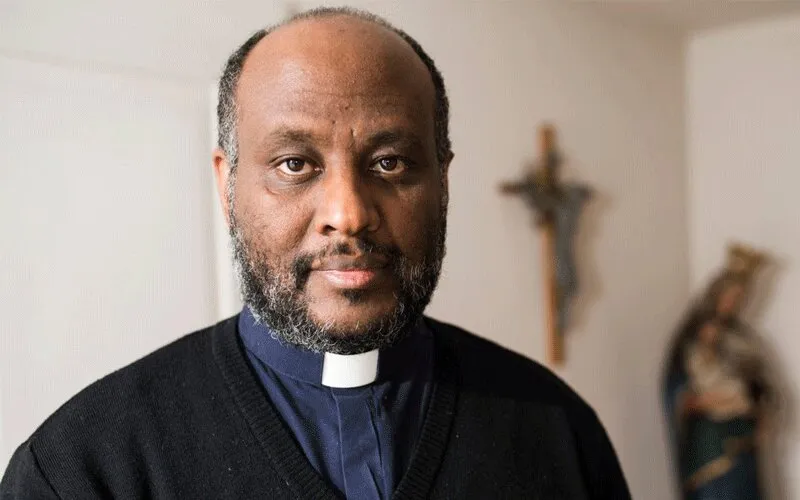This investment of resources “is the best way to help and welcome refugees. Otherwise, the exodus to Europe will increase with the sad number of deaths in the desert and in the Mediterranean Sea,” he adds.
Further, the Eritrean Cleric who was nominated for the 2015 Nobel Peace Prize “would like diplomatic efforts to urge the Ethiopian government to protect the rights of these migrants in order to grant residence permits to those living outside the refugee camps.”
With civilians no longer housed in refugee camps, “many women and children without protection and without accommodation are particularly exposed to the dangers of the coronavirus emergency,” Fr. Mussie observes in the November 14 report by Agenzia Fides, the information service of the Vatican's Propaganda Fide.
A landlocked country, Ethiopia is home to an estimated 769,000 Eritrean refugees fleeing persecution by the authoritarian regime of President Isaias Afewerki. The regime is characterized by indefinite forced national service, forced labor, and unlawful detention among other practices that manifest human rights violations.
Beyond registration and recognition of the status of refugees, which would ensure their protection, Fr. Mussie says in reference to the refugees, “It is necessary to guarantee them materials (food, shelter, etc.) for protection as well as medical and psychological help.”
Expressing his appreciation for the local government and parishes for being “very welcoming, supportive and collaborative in a fraternal spirit with the refugees,” the Eritrean Cleric who was ordained a Priest in 2010 bemoans, “The situation on the site, however, is dramatic.”
Amid the myriad of challenges the Eritrean refugees in Tigray are facing, the Priest says, “The most critical situation is that of minors. Many of them are on their own. They have no one to help them. They do not go to school; they drink alcohol, smoke, and many girls get pregnant.”
“Minors must be helped to grow up with sound principles. I appeal to all the institutions of the UN High Commissioner for Refugees and to the Ethiopian government to activate all the useful tools to alleviate the suffering of these very vulnerable refugees," Fr. Mussie says in the November 14 report.
In September, Fr. Mussie highlighted the plight of Eritrean refugees in Ethiopia saying they have been rejected and become “victims of exploitation, prostitution and deprivation.” He called on the EU to strive toward the realization of dignified treatment of the refugees.








